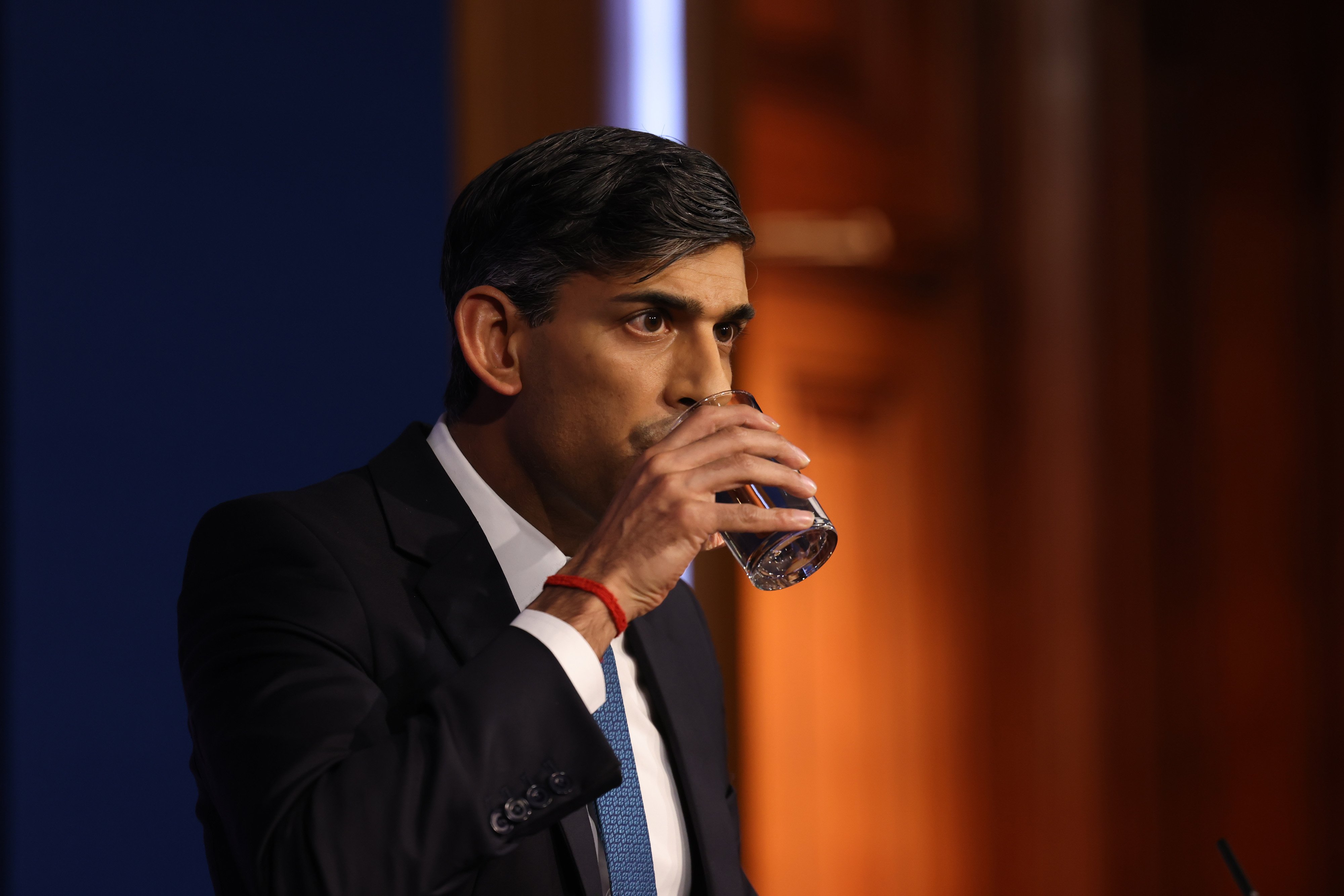Sunak’s inflation win: not all that it seems?
The headline figure may be tamed, but there's still the problem of a stagnant economy

A free daily email with the biggest news stories of the day – and the best features from TheWeek.com
You are now subscribed
Your newsletter sign-up was successful
When Rishi Sunak announced in January that he wanted to see inflation – then running at an average quarterly rate of 10.7% – "halve" by the end of the year, plenty of people "were inclined to smirk", said Simon English in the Evening Standard.
Given that the main drivers of inflation lay in global factors beyond his control, the pledge seemed like a hostage to fortune. Well, fair play to the PM, a man "who seems not overly blessed with good luck", for pulling it off.
This week's figures showed a sharp fall in headline inflation to 4.6% in October (a big drop from September's 6.7%), all but ensuring that he'll keep his promise. The fall is largely down to the end of the "energy crunch" and 14 consecutive interest rate rises – but it'd be "churlish not to give the PM a tip of the hat". On this score, at least, he can declare victory.
The Week
Escape your echo chamber. Get the facts behind the news, plus analysis from multiple perspectives.

Sign up for The Week's Free Newsletters
From our morning news briefing to a weekly Good News Newsletter, get the best of The Week delivered directly to your inbox.
From our morning news briefing to a weekly Good News Newsletter, get the best of The Week delivered directly to your inbox.
'Pivotal moment'
Tory officials view the announcement that Sunak has met the first of his "five priorities" as a "pivotal moment", said George Parker in the FT: the juncture at which they can "start mapping out a more optimistic economic picture" ahead of next year's expected general election. "Better news on inflation is expected to be mirrored by a better than expected fiscal situation" when the Chancellor, Jeremy Hunt, delivers his Autumn Statement next week – giving him "some modest scope for targeted tax cuts". Harriett Baldwin, the Tory Chair of the Commons Treasury Committee, reckons that, despite the economy's travails, it will be a "feel-good" statement.
That would ignore the bigger picture, said Phillip Inman in The Observer. "Slower price growth, due partly to tighter Treasury purse strings, won't lift the gloom of a flatlining economy", which has expanded by just 0.6% over the past year, with little hope of imminent change. The Bank of England has signalled that interest rates will remain at their 15-year high of 5.25% for much of next year. In the meantime, "the long-term outlook for UK plc will be increasingly dismal".
'Plenty of reasons to be sceptical'
Is inflation really licked? One thing muddying the waters, said Kate Andrews in The Spectator, is this week's wages update, which showed that annual growth in regular pay rose by 7.7% between July and September – the "fastest in two years". The worry is that a "wage-price spiral" could lead to "a secondary wave of price hikes". There are plenty of reasons to be sceptical: "the underlying causes of inflation" are more closely linked to monetary decisions and "influxes in money supply"; and wages have only been rising in real terms for a few months.
But it matters because BoE policymakers "are inclined to lean into" the wage/spiral theory. Markets may think that we've reached the peak of rate hikes; but it isn't a done deal yet.
A free daily email with the biggest news stories of the day – and the best features from TheWeek.com
-
 Why is the Trump administration talking about ‘Western civilization’?
Why is the Trump administration talking about ‘Western civilization’?Talking Points Rubio says Europe, US bonded by religion and ancestry
-
 Quentin Deranque: a student’s death energizes the French far right
Quentin Deranque: a student’s death energizes the French far rightIN THE SPOTLIGHT Reactions to the violent killing of an ultraconservative activist offer a glimpse at the culture wars roiling France ahead of next year’s elections
-
 Secured vs. unsecured loans: how do they differ and which is better?
Secured vs. unsecured loans: how do they differ and which is better?the explainer They are distinguished by the level of risk and the inclusion of collateral
-
 Democrats push for ICE accountability
Democrats push for ICE accountabilityFeature U.S. citizens shot and violently detained by immigration agents testify at Capitol Hill hearing
-
 Fulton County: A dress rehearsal for election theft?
Fulton County: A dress rehearsal for election theft?Feature Director of National Intelligence Tulsi Gabbard is Trump's de facto ‘voter fraud’ czar
-
 ‘Melania’: A film about nothing
‘Melania’: A film about nothingFeature Not telling all
-
 Greenland: The lasting damage of Trump’s tantrum
Greenland: The lasting damage of Trump’s tantrumFeature His desire for Greenland has seemingly faded away
-
 Minneapolis: The power of a boy’s photo
Minneapolis: The power of a boy’s photoFeature An image of Liam Conejo Ramos being detained lit up social media
-
 The price of forgiveness
The price of forgivenessFeature Trump’s unprecedented use of pardons has turned clemency into a big business.
-
 The ‘mad king’: has Trump finally lost it?
The ‘mad king’: has Trump finally lost it?Talking Point Rambling speeches, wind turbine obsession, and an ‘unhinged’ letter to Norway’s prime minister have caused concern whether the rest of his term is ‘sustainable’
-
 ‘Implementing strengthened provisions help advance aviation safety’
‘Implementing strengthened provisions help advance aviation safety’Instant Opinion Opinion, comment and editorials of the day